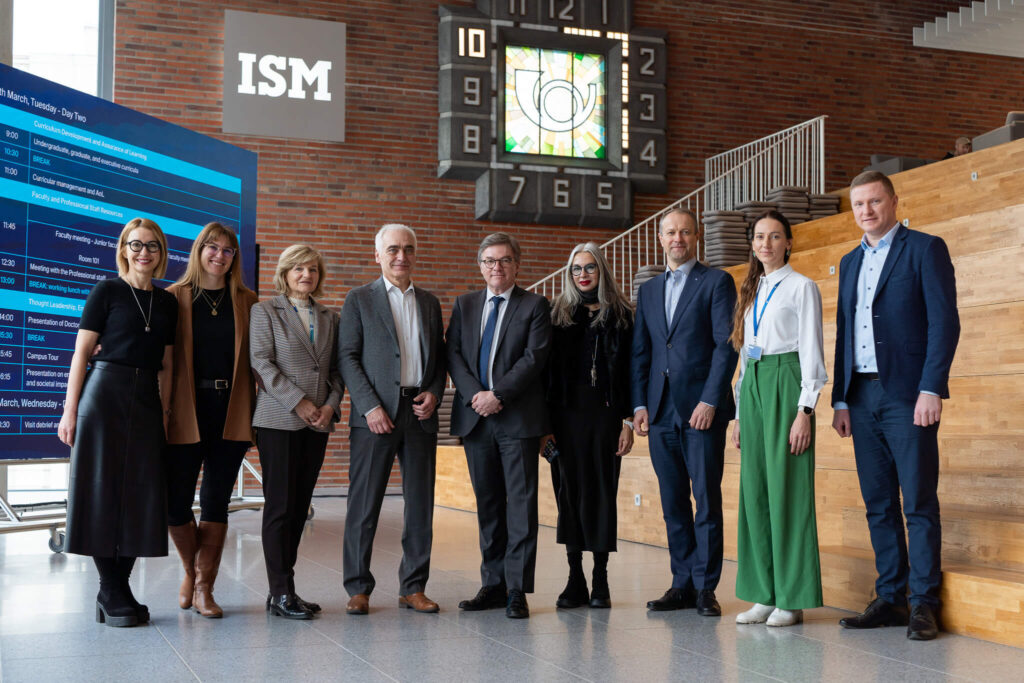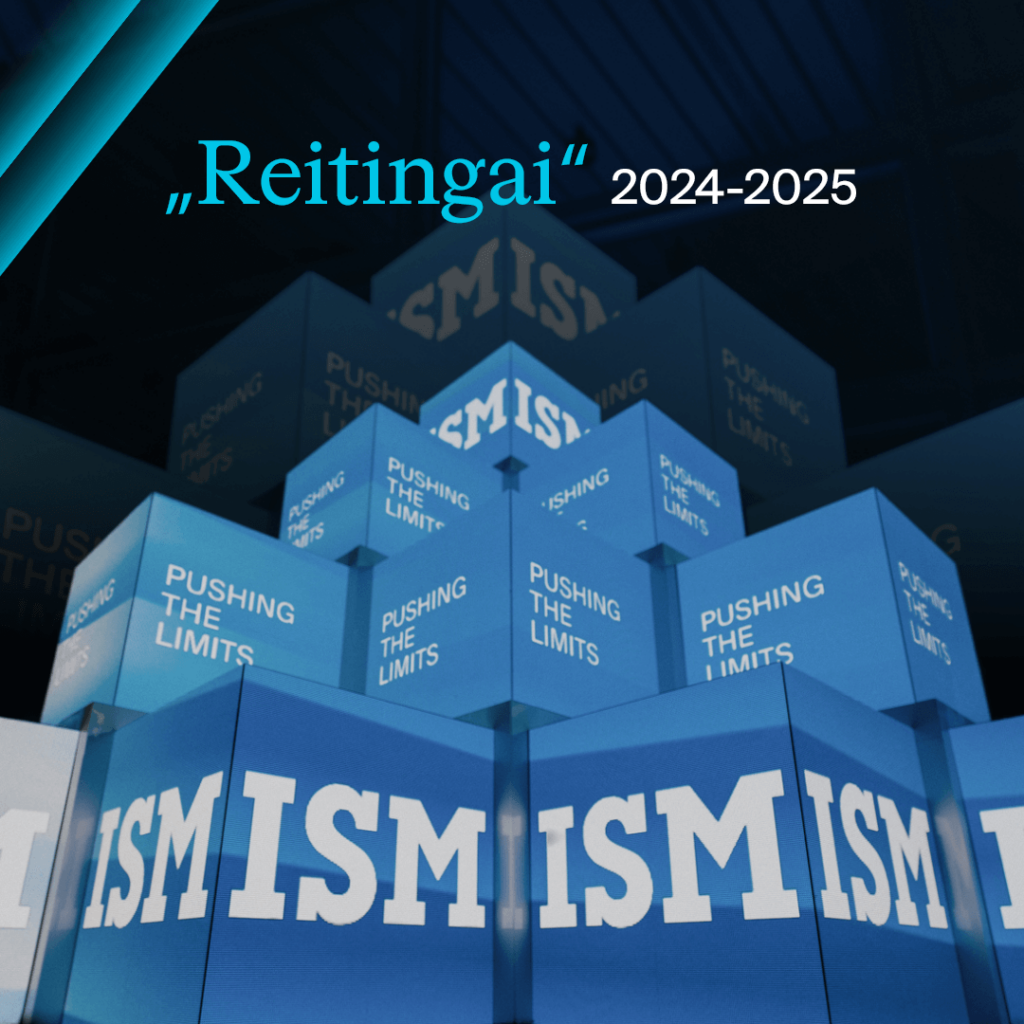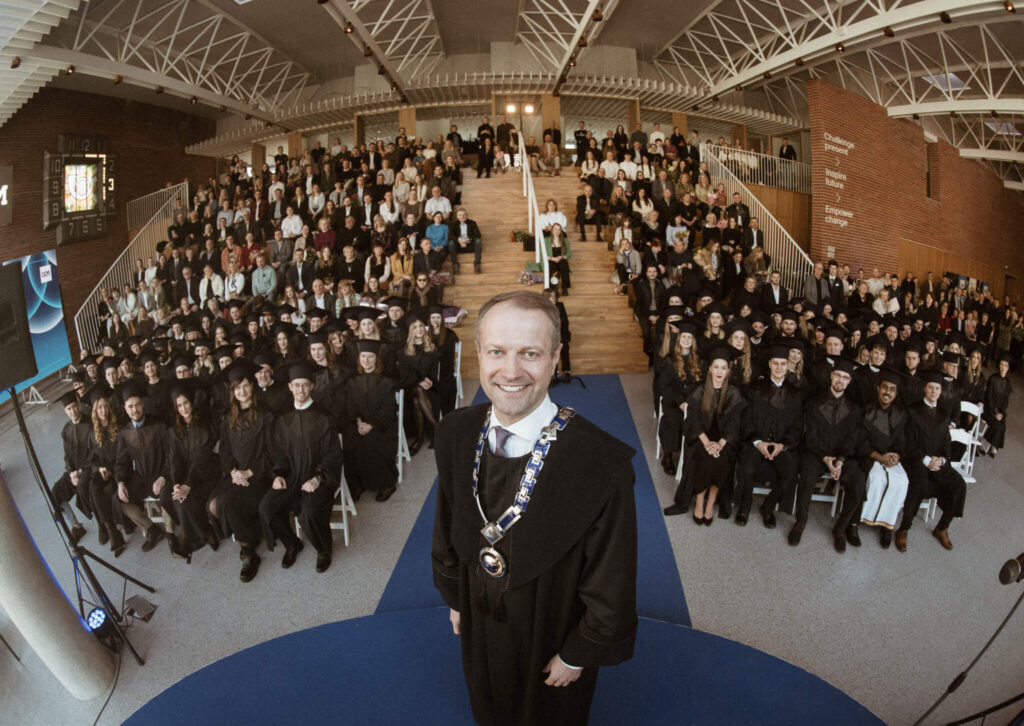Business Management and Marketing
You will get a strong foundation in management, develop analytical skills and solve real problems faced by companies. You will delve into marketing, human resources, finance and processes.

Get to know the study programme








Program structure
What will I learn?
What will I learn?
What will I learn?
What will I learn?
What will I learn?
What will I learn?
Courses
What will I learn?
What can I be?
Head of Marketing
Sales Manager
Business Consultant
Social networking specialist
Project manager
Content Creator
Start your own business
Head of advertising creation

Programme benefits
Opportunities abroad

Study tour to WEBSUMMIT conference
You will attended WEBSUMMIT, the largest technology conference, in Portugal
Double degree with BI Norwegian Business School
Study in Norway, in one of the world’s 1 percent of Triple Crown-accredited universities (AMBA, EQUIS, AACSB).How does this work? Selection takes place in the fourth semester of studies. Students who pass the selection will study at BI Norwegian Business School for one year.
How much does it cost? Tuition fees are payable at BI Norwegian Business School. A ten percent discount applies. Meanwhile the student is required to pay for the studies at the ISM University.
Where will I live while studying in Norway? BI Norwegian Business School offers various types of accommodation in student residences.
How will I benefit from this program? You will receive diplomas from two high schools almost at the same time. You will form an international circle of acquaintances. While studying abroad, you will broaden your horizons and be able to feel comfortable and work efficiently in a multicultural environment.

Double degree with KEDGE Business School
Study in France, in one of the world’s 1 percent of Triple Crown-accredited universities (AMBA, EQUIS, AACSB).How does this work? Selection to KEDGE Business School takes place in the third semester. After passing the selection, students have the opportunity to study at KEDGE Business School in France.
How much does it cost? No additional costs apply
How long does it take? 3 semesters
Is there an accommodation service? KEDGE Business School helps you find accommodation.
How will I benefit from this program? You will receive diplomas from two high schools almost at the same time. You will form an international circle of acquaintances. While studying abroad, you will broaden your horizons and be able to feel comfortable and work efficiently
News and events
The business management and marketing study program is an excellent choice for those looking for challenges and who want to achieve the highest results among like-minded people.

Price, financing, and admissions
Tuition fees
ISM University charges a tuition fee. The fee is paid every semester. The same price applies both to EU and non EU students.
3190 EUR — Economics and Politics
3190 EUR — Economics and Data Analytics
3190 EUR — Finance
3190 EUR — International Business and Communication
3190 EUR — Business Management and Marketing
3720 EUR — Entrepreneurship and Innovation
Application fee
The application fee is 100 EUR.
It must be paid by transfer to the bank account of the ISM University of Management and Economics, and the receipt certifying the payment must be submitted to the enrolment system. Application fee is non-refundable.
Scholarships
Scholarships are available for all bachelor’s programmes
Best International applicants who will be applying for 2023 September intake can get a scholarship that covers up to 100%* of the tuition fee. Once granted, scholarships will continue to apply in the next semester provided that the student’s average mark is not lower than the average mark of the course and the student has no failures or penalties. Only the best applicants will be granted with scholarships by admission committee decision.
Opportunity to get a SCHOLARSHIP up to 50% (only for early applicants)
Students who apply during the early admission period (November 1 – April 30) can expect to get a scholarship up to 50%. To get a scholarship, students are required to take ISM’s Test, which consists of three parts: English language, Mathematics and Logical Thinking.
Scholarships will be issued by the end of May to those students who:
- Have the highest average grades from school
- Are highly motivated
- Perform well on ISM’s Tests
ISM achievement scholarship
Even more motivation to study well at ISM university! Undergraduate students with the highest grades are awarded an Achievement Scholarship, which covers as much as 25 percent of the annual tuition fees.
The university offers as many as 10 Achievement Scholarships for each course. Scholarships are awarded for academic achievement to those with the highest weighted average in the same course. At the end of the academic year, a competitive queue will be formed based on annual students’ results, according to which the Achievement Scholarships are awarded.
If you have any questions, please contact the International Admissions team by e-mail bs@ism.lt
Admission rules
ISM runs a three-step selection process: fulfillment of eligibility criteria, online interviews, and an online Admissions Tests (for candidates who seek a scholarship).
How to apply?
To begin: Check eligibility
General requirements:
- A secondary school education completed or if you are in your final year at school you need to submit transcript grades;
- State mathematics examination or, if the person has not taken this exam, the ISM mathematics test results.
International applicants, please check your country’s specific requirements here
English language requirements*:
- ISM English test (minimum score of 55);
- TOEFL (minimum score of IBT 60 points);
- IELTS (minimum score of 6);
- Cambridge English test Level B2 Certificate (minimum score of 169);
- PTE Academic (minimum score of 52);
- Duolingo English Test (minimum score of 115);
- International Baccalaureate or European Baccalaureate diploma;
- English state exam result is equal or higher than Level B2 if applicant is from Estonia or Latvia;
*Applicants whose previous education was taught entirely in English may also be exempted from the English language requirement, subject to the decision of the admissions committee.
After the motivational interview, the ISM admission commission reserves the right to request the applicant to take the ISM English language test.
All applicants who fulfill the formal entry requirements are welcome to submit an online application form.
Detailed admission instructions can be found HERE
Investing in studies pays off
Considering studies at ISM?













